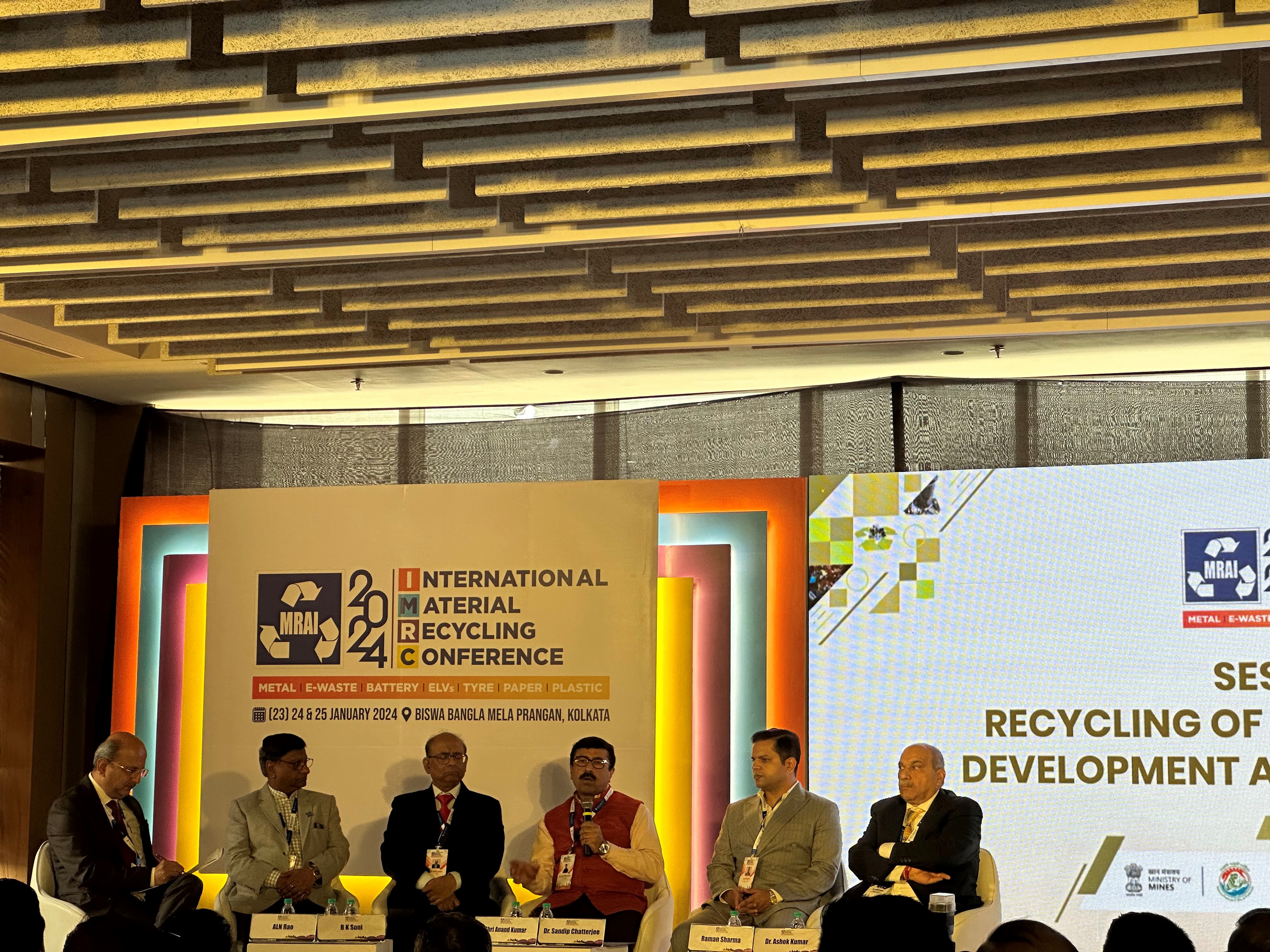您想继续阅读英文文章还
是切换到中文?
是切换到中文?

THINK ALUMINIUM THINK AL CIRCLE

MRAI's 11th IMRC 2024 Convention & Exposition in Kolkata opened with a startling discourse as stalwarts from the international materials recycling sector came together to commemorate the event.

The Material Recycling Association of India (MRAI) had arranged for a three-day seminar and exposition spanning from January 23 to 25 at the Biswa Bangla Mela Prangan in Kolkata. Day 1 saw heavy registrations as intrigued candidates from the downstream, and recycling industry started flooding the registration arrays.
AL Circle had the opportunity to be present first-hand and to experience the mesmerising event unfolding slowly. There were five assorted sessions that had been planned by MRAI on January 23 (Day 1):
All the conducted sessions were equally insightful, but since AL Circle mainly deals with advancements in the global aluminium industry, this article will delve deeper into pointers shared during the "Recycling of E-waste & Battery: Development and Policy Initiatives" session, with citations from the "Extended Producer Responsibility (EPR) to Incentivize Recycling Industry" session as well.
The "Recycling of E-waste & Battery" session was chaired by eminent leaders of the aluminium industry like Shri Anand Kumar, the Director & DH of WM-III; Dr. Sandip Chatterjee, Scientist, MeitY; Mr. B.K. Soni, Chairman and MD, Eco Recycling Ltd; Dr. Ashok Kumar, Director, MRAI and Mr. Raman Sharma, MD, Exigo Recycling. This particular session was coordinated by Mr. ALN Rao, Director, MRAI.
Introduction to e-waste recycling – Key Challenges – Extended opportunities
The symphony of challenges plays a pivotal tune within the intricate lattice of discussions. The sinuous roads of infrastructural issues, laden with obstacles, become a focal point. Navigating through the labyrinth of E-waste amendments in India and the resonance of Extended Producer Responsibility (EPR) rules, the discourse delves into the heart of sustainability. It echoes the transformative journey that commenced on the 1st of May in 2012 with the formulation of e-waste rules, marking a paradigm shift in the approach towards electronic waste management.
In the tapestry of time, 2020 stands as a remarkable year. Committees, sculpted by the deft hands of the Prime Minister, emerged, bearing the promise of change. As we converge in the intellectual haven of Kolkata for the 2024 Convention & Exposition, the resonance of those key points echoes—resilience, adaptability, and policy evolution. The session is a crucible where the recycling of e-waste and batteries takes centre stage, intertwining seamlessly with the ever-evolving narrative of the aluminium industry.
What did the experts say?
While Dr Sandip Chatterjee from the Ministry of Electronics and Information Technology defined the need for recycling e-waste and talked about retracting all the 69 elements from the periodic table that are usually applied in making electronic goods, Mr Raman Sharma, MD, Exigo Recycling complained about the viability gap in the Indian recycling sector. Shri Anand Kumar seemed quite optimistic after the constant queries raised by Dr Ashok Kumar, who was concerned that EPR was only for producers, whereas the recyclers have no obtuse paradigm to maintain. Mr BK Soni, Ecoreco's Chairman & MD, on the other hand, pointed out how vast the recycling industry is in India but how equally difficult it is to source end-user scrap in the country. This is mainly because India has two societies working hand in hand: the traditional – non-penetrable one and the technological–digitalised version.
During this symposium of erudition, we witnessed the alchemy of challenges metamorphosing into triumphs. The saga is not merely about recycling materials but about crafting a narrative where development and policy initiatives harmonise, birthing a future where each discarded component has a renewed purpose. If you are intrigued by recycling initiatives in the aluminium sector, please have a look at AL Circle's special report, World Recycled Aluminium - Market Analysis.
Responses








